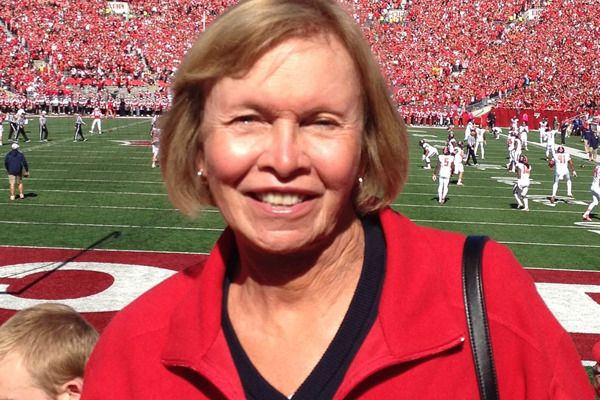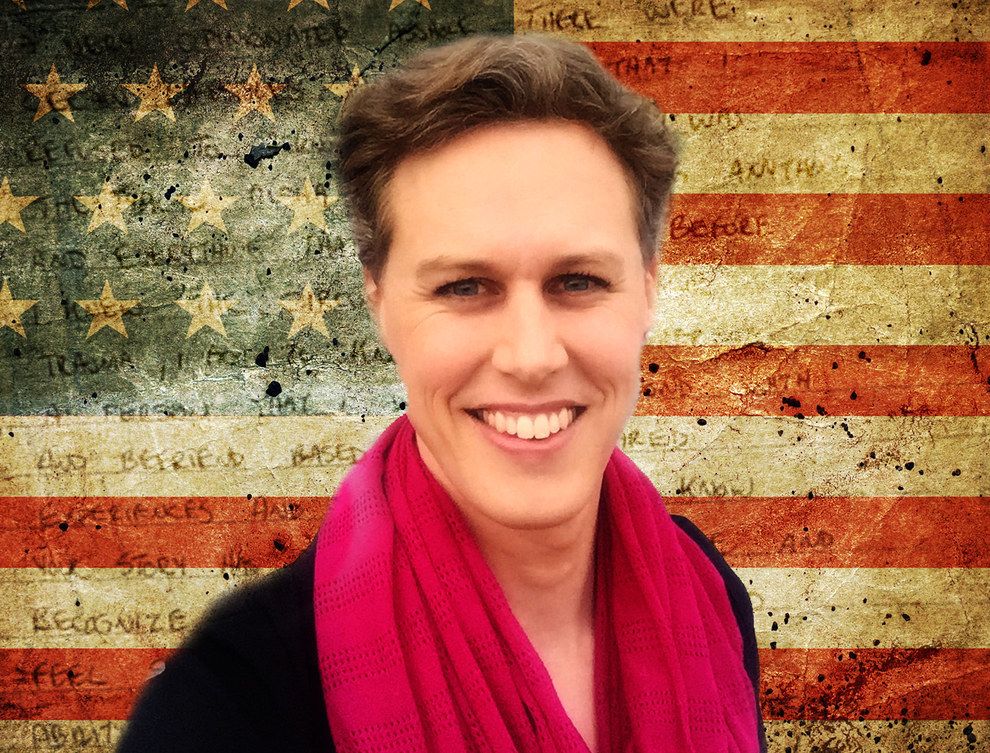The Pentagon held its first Gay Pride event at its Arlington headquarters. The theme of the event was Celebrating Victories that have Affirmed Freedom and Fairness. Defense Secretary Ashton Carter hosted the event.
Discrimination of any kind has no place in America's armed forces.
Recognizing that our openness to diversity is one of the things that have allowed us to be the best in the world, we must ensure that everyone who is able and willing to serve has the full and equal opportunity to do so. We must start from a position of inclusivity, not exclusivity. Anything less is not just plain wrong, it’s bad defense policy.
“Embracing diversity and inclusion is critical to recruiting and retaining the force of the future. Young Americans today are more diverse, open, and tolerant than past generations. If we’re going to attract the best and brightest among them to contribute to our mission of national defense, we have to ourselves be more diverse, open, and tolerant, too. It’s the only way to compete in the 21st century.
--Carter
 Among those slated to be in attendance were retired Colonel Sheri Swokowski, who served as an infantry soldier for 34 years presenting as male, who plans to wear a female Army Service Uniform with an infantry gold-crossed rifle insignia as well as the US Army's first openly transgender active duty officer, Major Jamie Lee Henry.
Among those slated to be in attendance were retired Colonel Sheri Swokowski, who served as an infantry soldier for 34 years presenting as male, who plans to wear a female Army Service Uniform with an infantry gold-crossed rifle insignia as well as the US Army's first openly transgender active duty officer, Major Jamie Lee Henry.
I hope to be a visible voice for those 15,500 folks that are forced to serve in silence and sacrificing their own authenticity to do that. So I will be in the audience and SECDEF is going to be the keynote speaker. I don’t know if he will notice, but I’m sure along with other people along the route, they will certainly witness something they haven’t seen before.
--Swokowski

Henry is a doctor in the Army's medical corps.
In holding an interview with BuzzFeed News, Henry is the first known active-duty Army officer to come out as transgender. She also is, to her knowledge and to the knowledge of LGBT advocates, the first and only active duty service member who has changed her name and gender within the United States military.
Swokowski was among several who managed to get their names changed and issued updated DD-214 discharge papers last month.
When Henry requested that her name and gender be officially changed in mid-March, the Army “actually used female pronouns in the document” that granted the request for the change in the Defense Enrollment Eligibility Reporting System (DEERS), she said. After receiving that in May, she then used the Army’s response to change her permanent military records in the interactive Personnel Electronic Records Management System (iPERMS), as well as in her medical records. The changes came, she said, “I think to the surprise of many, that it was even possible. But it’s been confirmed, it has been changed."
It is unknown if the Army will extend a similar courtesy to non-officers.
People ask, 'Is this a choice?' The choice is being healthy or sick. I can continue living a sick life, or I can live a healthy life.
--Maj. Henry
Henry says her story — and the story of many other trans people currently serving — proves that being out and trans is compatible with military service. What’s more, Henry says that being trans has made her a better service member and better doctor.
Henry joined ROTC fifteen years ago at age 17. She did her first rotation in the psych ward at Walter Reed 10 years ago and has been treating wounded ill and injured service members ever since.
Three years ago, however, her life was in upheaval. It was a very difficult time — she even became homeless briefly — as she came out as transgender to the people in her life, and dealt with complications to her family, religious, and military life.
Her company commander provided Henry with housing and helped her continue her military career...knowing she was transgender.
My company commander restored my faith in what it means to be a soldier.
--Henry
Eventually she had a new commander, who she feared might be less accepting.
My commander said, 'I don’t care who you love, I don’t care how you identify, I want you to be healthy and I want you to be able to do your job,'. I was blown away … because of the stereotypes that I held, growing up in the South, growing up in a fundamentalist Christian family, that he would automatically think I was a freak, he would automatically think, ‘You need to be discharged just like the regs recommend.’
--Henry
Henry is, however, and has been maintaining male grooming standards. She was also advised not to speak to the media. Apparently that advisement has been withdrawn.
Yes, it’s awkward. I’ve had to embrace awkwardness with gusto these last nine months. It’s not easy. It’s not easy for the people that are my family, it’s not easy for the people that are my friends prior to my transition.
--Henry
Once you see something, it’s hard to look away because my story is not unique. And as an officer — as a field-grade officer, a major — and as a physician, hearing things — the despair, the feelings of disrespect or humiliation or whatever in not having someone’s medical and legal gender recognized — to hear that day in and day out [has] somewhat emboldened me to lead.
--Henry
To that end, Henry submitted a statement to the AMA last weekend asking that organization to take a stand in support of transgender troops.
On Monday, the resolution was passed by the AMA's house of delegates.
1. There is no valid medical reason to ban transgender persons from serving in the U.S. military.
2. Transgender service members should be provided care as determined by patient and physician according to the same standards that apply to non-transgender personnel.
--AMA


